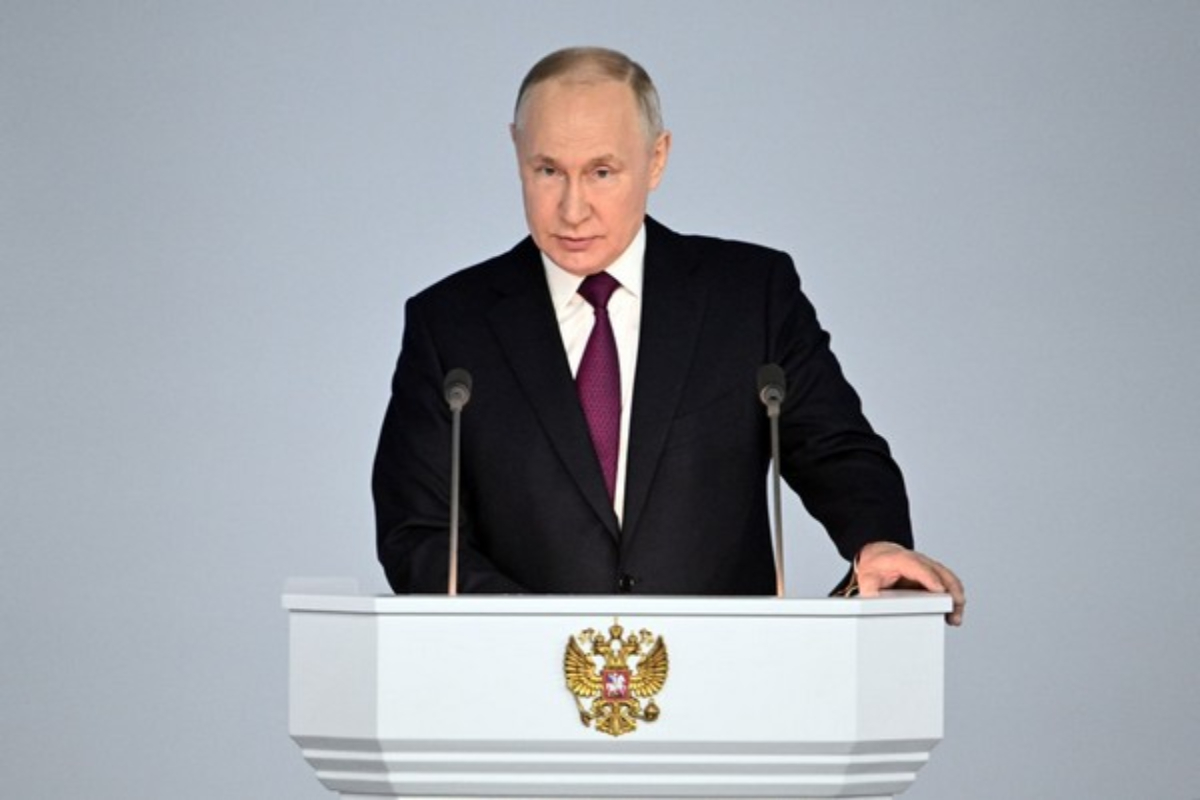US: 4 killed after tornadoes hit Oklahoma
At least four people have been killed since Saturday night when multiple large tornadoes began to hit Oklahoma in the US, Oklahoma Governor Kevin Stitt has said at a news conference.

Russian President Vladimir Putin [Photo : ANI]
Influential voices in the US policy making establishment have, in the wake of the mercenary Wagner Group’s march almost to Moscow, started making the case for strengthening sanctions against Russia. President Vladimir Putin, it is assessed, has been considerably weakened as a result of the aborted revolt. It is, therefore, “now time to redouble pressure and hold accountable (Mr) Putin and his cronies for their aggression against Ukraine and effort to undermine global democracy; financial sanctions are a critical part of that full-court press”, says a recent Brookings Institute paper. The emphasis is on plugging the loopholes in the 5,000 targeted financial sanctions listings in nine jurisdictions. The Brookings sanctions tracker holds that effective sanctions advance what it terms the global fight against corruption.
It is true that the latest US sanctions announced earlier this week are meant to impact enablers of graft in the Russian governance system. But while measurable action against the legislative bodies of the Russian Federation, which includes sanctioning hundreds of members of the Federation Council and the State Duma, may be seen as a blow against kleptocracy in Russia by the USA in particular and the West in general, such moves will consolidate the support among a significant section of Russian citizens for their deeply flawed governance structure.
Nationalist sentiment, history tells us, should never be underestimated by foreign powers trying to enforce regime change in a distant country. If anyone should know that, it is the Americans. Where the Brookings sanctions tracker does provide valuable insights is in laying bare the relationships among sanctioned individuals and entities, as well as discrepancies across jurisdictions. Two networks fuelling Russia’s war in Ukraine, the Wagner Group and the chain of Iranian unmanned aerial vehicle (UAV) suppliers, are cases in point. PMC Wagner is sanctioned for human rights abuses and transnational crimes around the world.
Advertisement
Its activities have been amplified by the conflict in Ukraine, in which Wagner’s mercenaries were deployed to fight on behalf of the Russian state. Nearly all the jurisdictions tracked by Brookings have sanctioned Dimitriy Valerievich Utkin, a founder of the Wagner Group, and several have sanctioned Task Force Rusich, a paramilitary organisation allegedly operating as a sub-unit of Wagner Group. A pattern of extensive third-parties linked to and allegedly operating on behalf of Wagner, replicated in another area essential to Russia’s war effort in Ukraine has emerged. To wit, Iranian UAV supply. While Moscow has denied receiving or using Iranian drones, there is evidence in the public domain which suggests the invasion of Ukraine has opened a window of opportunity for Tehran. The Iranian UAV production network is intricately linked through companies and individuals associated with the Islamic Revolutionary Guard Corps (IRGC) Aerospace Force.
The UAVs deployed by Russian armed forces in Ukraine are manufactured by private companies and exported through a series of illicit networks on the directions of the Iranian government; individuals heading each organisation involved in the process are now being sanctioned. But that’s a geopolitical strategy, not a fight against corruption.
Advertisement